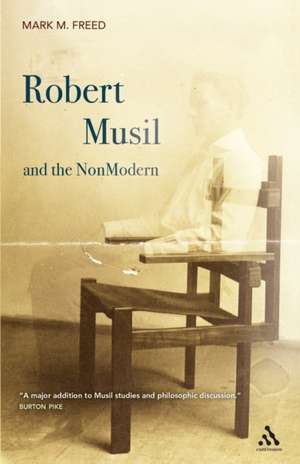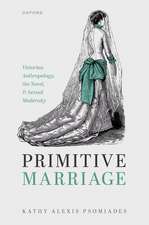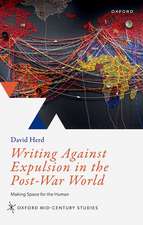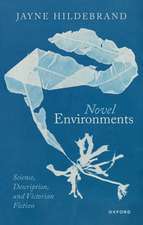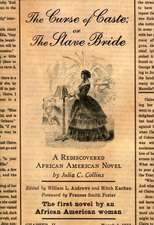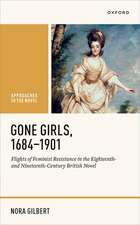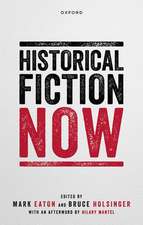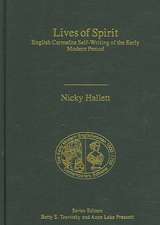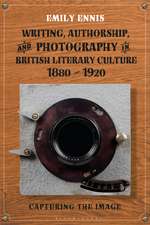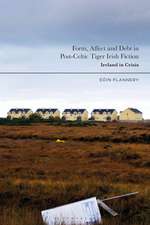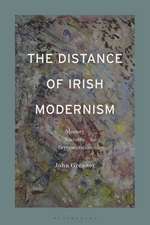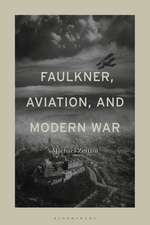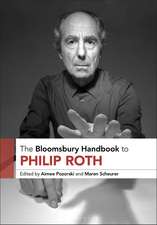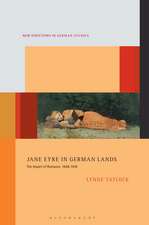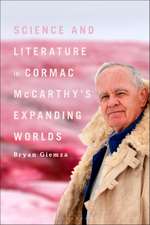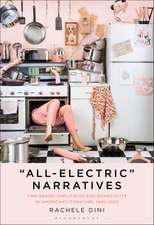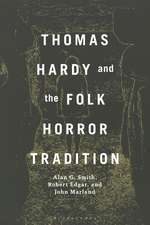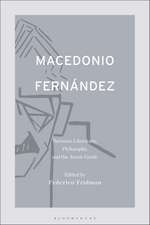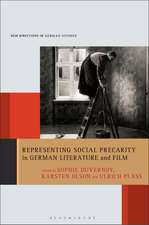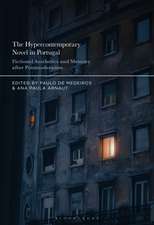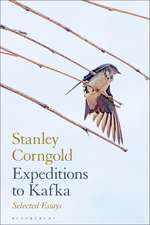Robert Musil and the NonModern
Autor Professor Mark M. Freeden Limba Engleză Paperback – 29 iun 2011
Freed brings Musil into dialogue with such critics of the modern as Nietzsche, Heidegger, Derrida, and Lyotard and argues that Musil's theory and literary performance of essayism constitutes a strategy of nonmodernity: that is, an engagement with the problems of modernity that does not re-inscribe the distinctions on which modernism grounded itself.
This book not only offers an understanding of Musil's essayism made possible by Latour's account of modernity: it also articulates what the discursive and cultural project of nonmodernity might look like. The book thereby introduces Musil scholars and those working in the problematics of postmodernism to one another's interests.
Preț: 222.74 lei
Nou
Puncte Express: 334
Preț estimativ în valută:
42.62€ • 44.50$ • 35.27£
42.62€ • 44.50$ • 35.27£
Carte în stoc
Livrare din stoc 25 februarie
Preluare comenzi: 021 569.72.76
Specificații
ISBN-13: 9781441122513
ISBN-10: 1441122516
Pagini: 192
Dimensiuni: 138 x 216 x 13 mm
Greutate: 0.27 kg
Editura: Bloomsbury Publishing
Colecția Continuum
Locul publicării:New York, United States
ISBN-10: 1441122516
Pagini: 192
Dimensiuni: 138 x 216 x 13 mm
Greutate: 0.27 kg
Editura: Bloomsbury Publishing
Colecția Continuum
Locul publicării:New York, United States
Caracteristici
Musilâ?Ts novel The Man Without Qualities is an acknowledged monument of literary modernism.
Notă biografică
Mark M. Freed is Professor of Literary Theory in the Department of English at Central Michigan University, USA.
Cuprins
Acknowledgements
A note on Musil's texts
Abbreviations
Introduction: Robert Musil en marge
1. The thought figure of the nonmodern
2. Something other than reason's other
3. Disclosing concealed being
4. Order without a system
5. Toward a nonmodern avant-garde
6. Judgment without criteria
Notes
Bibliography
Index
A note on Musil's texts
Abbreviations
Introduction: Robert Musil en marge
1. The thought figure of the nonmodern
2. Something other than reason's other
3. Disclosing concealed being
4. Order without a system
5. Toward a nonmodern avant-garde
6. Judgment without criteria
Notes
Bibliography
Index
Recenzii
"With exemplary depth and clarity this fine book analyzes Musil's concept of "essayism" as Musil's alternative approach to the concepts of Modernism on which philosophy has run aground. Freed, respecting Musil as a writer who had an informed philosophical background, places his way of thinking against rigorous analyses of Nietzsche, Heidegger, Habermas, Lyotard, Latour, Mach, Foucault, Derrida, and others. A major addition to Musil studies and philosophic discussion." -- Burton Pike, Professor Emeritus of Comparative Literature, The Graduate Center, City University of New York, USA, and co-translator (with Sophie Wilkins) of Robert Musil's The Man Without Qualities (Vintage, 1996).
"Mark Freed's Robert Musil and the NonModern builds a strong case for including Musil among the giants of modern literature, precisely by challenging the basis of the modern. Musil's 'Essayismus', the philosophical view that permeates his great novel, becomes in Freed's reading, a device of 'non-modernism,' which questions existing formulas and finds the modern in the postmodern and the postmodern in the modern. Appealing to Lyotard and Latour as his guides, the author leads us to Musil via Habermas and Heidegger, in terms that are as clear as possible, given the terrain. The interplay of literature and philosophy shines forth in this work of great quality." -- Ruth V. Gross, Professor of German and Department Head, Department of Foreign Languages and Literatures, North Carolina State University, USA
Robert Musil and the NonModern offers the most exciting reading to date of Musil's experimental method, his essayism, and his uncompromising openness to the hope of a lived utopia. http://www.openlettersmonthly.com/there-will-be-no-more-great-ideas/
Many Musil scholars continue to mine his notebooks and diaries for the often multilayered sources of his characters and ideas. Others, however, have engaged in a different, more adventurous project, one that goes beyond the author's own cultural-historical horizon in order to bring his 'crisis of modernity' into dialogue with wider arguments about the modern and postmodern. Mark Freed's exhilarating book is one of the latest editions to this Musil-meets-Lyotard subgenre. His aim, however, is to '[read] Musil alongside canonical postmoderns' in order to 'introduce Musil scholars and those working in the problematics of postmodernism to one another's interests' (11). In this respect, he has succeeded admirably.
"Mark Freed's Robert Musil and the NonModern builds a strong case for including Musil among the giants of modern literature, precisely by challenging the basis of the modern. Musil's 'Essayismus', the philosophical view that permeates his great novel, becomes in Freed's reading, a device of 'non-modernism,' which questions existing formulas and finds the modern in the postmodern and the postmodern in the modern. Appealing to Lyotard and Latour as his guides, the author leads us to Musil via Habermas and Heidegger, in terms that are as clear as possible, given the terrain. The interplay of literature and philosophy shines forth in this work of great quality." -- Ruth V. Gross, Professor of German and Department Head, Department of Foreign Languages and Literatures, North Carolina State University, USA
Robert Musil and the NonModern offers the most exciting reading to date of Musil's experimental method, his essayism, and his uncompromising openness to the hope of a lived utopia. http://www.openlettersmonthly.com/there-will-be-no-more-great-ideas/
Many Musil scholars continue to mine his notebooks and diaries for the often multilayered sources of his characters and ideas. Others, however, have engaged in a different, more adventurous project, one that goes beyond the author's own cultural-historical horizon in order to bring his 'crisis of modernity' into dialogue with wider arguments about the modern and postmodern. Mark Freed's exhilarating book is one of the latest editions to this Musil-meets-Lyotard subgenre. His aim, however, is to '[read] Musil alongside canonical postmoderns' in order to 'introduce Musil scholars and those working in the problematics of postmodernism to one another's interests' (11). In this respect, he has succeeded admirably.
